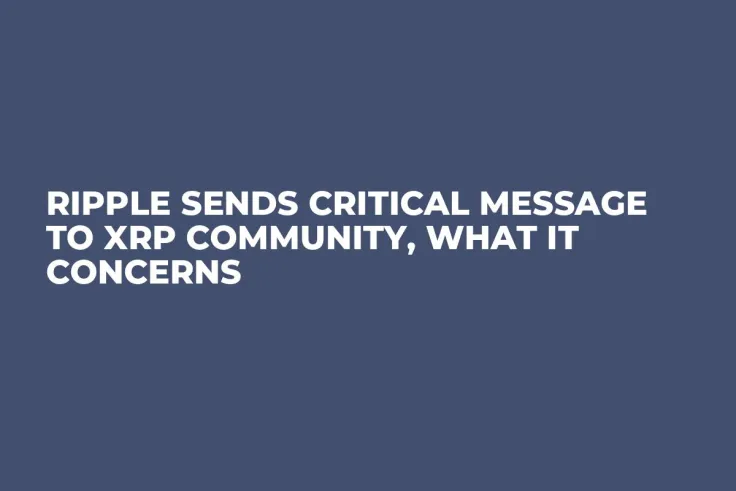
Disclaimer: The opinions expressed by our writers are their own and do not represent the views of U.Today. The financial and market information provided on U.Today is intended for informational purposes only. U.Today is not liable for any financial losses incurred while trading cryptocurrencies. Conduct your own research by contacting financial experts before making any investment decisions. We believe that all content is accurate as of the date of publication, but certain offers mentioned may no longer be available.
Ripple has issued an urgent warning to the XRP community. The alert comes in response to a series of scams targeting XRP holders. In particular, the likeness of Ripple’s CEO, Brad Garlinghouse, is increasingly being used in deepfakes and other crypto scams promising free XRP giveaways.
Ripple warns that neither the company nor any of its executives will ever ask anyone to send XRP. To better educate the community, Ripple created a demo video reinforcing the warning.
Popular scams include impersonation scams, whereby scammers create a sense of legitimacy by using logos, profile images, deepfakes or legitimate video excerpts with branding that matches real corporate imagery.
Crypto giveaway scams involve social media posts posing as public figures promising free cryptocurrency. Phishing scams occur often in the form of emails or text messages from a known entity, asking users to respond, visit a website or send money.
Exit scams, or rug pulls, occur when crypto developers pull their funds and abandon the project to profit from investors.
In a blog post, Ripple says it is fighting scams on many fronts, including working with third-party experts to actively scan the web for potential scams, alerting users to potential scam activity and working with other blockchain companies to coordinate scam prevention efforts.
Identifying scams
Ripple shared top tips for identifying and avoiding social media scams. These include Lack of a profile picture, unusual account names or wording in the comments to a social media post that "loves" or "thanks" the company for giveaway winnings.
Others include social media comments being restricted or turned off altogether, links to a fraudulent website or a crypto wallet address asking targets to send money, crypto giveaway scams and unexpected communications.
Suspicious wallet activity whereby unfamiliar crypto assets appear in users' wallets, promises of free crypto instantly, fake testimonials of others earning free crypto, and scam websites with spelling or grammar errors are also included.
Tips to stay safe
Crypto users should always conduct personal due diligence before giving or receiving funds. They should also check the company's website and official social networks to verify the information.
Crypto users are advised to use browsers that support safe browsing, which warns users about risky crypto scam websites or downloads. They should also remember that if something sounds too good to be true, it usually is.


 Vladislav Sopov
Vladislav Sopov Dan Burgin
Dan Burgin